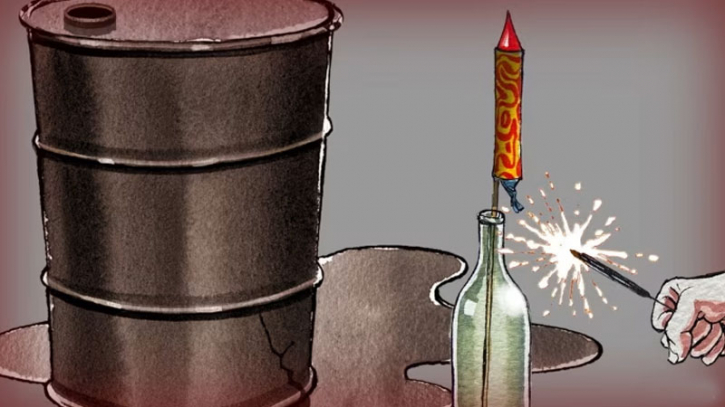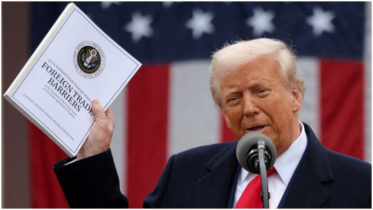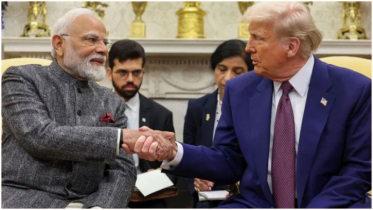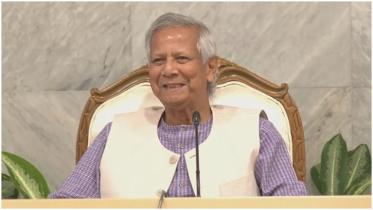Israel-Hamas war and its economic impacts

Global geopolitical tensions often play a very pivotal role in shaping people’s general perception of economic outlook. The current Israeli aggression against Gaza leading to more than 13,000 Palestinians death including over 5,500 children by the 3rd week of November is the latest chapter of a cycle of Israeli violence against Palestinians that has been going on in the occupied Palestine since Zionist colonial settler state Israel was created in 1948.
Any rational debate or discussion on the topic of Palestine has become virtually impossible in the West because any support for the Palestinian cause or any criticism of the Israeli government or state faces charges of “antisemitism”. Given the US and its European allies’ support for the colonial settler state Israel and continuing Palestinian resistance against the occupation of their land, there seems no end of violence in sight in occupied Palestine.
The policy of ignoring the historical context by the West has given rise to the current phase of the conflict. When the UN secretary general recently pointed out that the October 7 attack had a historical background, which is a demonstrably true statement, the Israeli Ambassador to the UN demanded that he be sacked immediately.
In fact, the US and its European allies are partners in the occupation of Palestine. In the context of the current Israeli aggression against Gaza, US president Biden and his European partners like Sunak in the UK, Macron in France, Schotz in Germany, Meloni in Italy as well as Trudeau in Canada are fully implicated as accomplices of Netanyahu in mass murder.
US president Joe Biden who famously said on June 5, 1986 that “If Israel did not exist, the United States would have to invent it”. He was a Senator at that time. His position now as the president of the US on Israel in the current phase of Israeli genocide against the Palestinians in Gaza has not changed, if anything it has further strengthened, he is even louder than before. In fact, from US president Harry Truman to Joe Biden that commitment has remained ironclad.
The recent racist and Islamophobic rants in public against an Egyptian Muslim food cart vendor in New York and also calling the vendor a “terrorist” and saying the death of 4,000 Palestinian children in Gaza “wasn’t enough” by Stuart Seldowitz, a former deputy director of the US State Department’s Office of Israel and Palestinian Affairs (1999-2003) who worked for the National Security Council under the Obama administration following a State Department career that spanned five presidencies holding high positions indicate the type of people that are recruited to design and implement US government policies towards Arab and Muslim countries. During his tenure at the State Department, this unhinged outright racist was a three-time recipient of the Department’s “Superior Honour Award.
The US engineered the Oslo Accord and the Abrams Accord which are attempts to further consolidate Israel as the colonial settler state in occupied Palestine with the support of major Arab states as the British did with the collaboration of Hussein bin Ali Hashimi, the Sharif of Mecca to colonise Palestine thus paving the way for the creation of the colonial settler state Israel leading to Nakba (catastrophe) to befall the Palestinians.
The current Israel-Hamas war has the potential to cause immediate and long-term economic ramifications. The Russia-Ukraine conflict clearly demonstrated that how such conflicts can disrupt the very intricate interdependence that shape the global economic relations, notwithstanding the geopolitical implications. Many economists suggest that this war has the potential to disrupt global economy.
Many central bank chiefs in the West believe that inflation will remain their biggest challenge for the next two years. Furthermore, uncertainty surrounding financial markets and the entire global financial system amid ongoing inflation, rising interest rates and ballooning government debt, the escalation of Israel-Hamas war, if militias in Lebanon and Syria join Hamas, could set off a major economic crisis. Such conflicts also often have a significant effect on stock markets, exchange rates and commodity prices.
According to Goldman Sachs the Israel-Hamas war could have a significant economic impact. The longer term economic impact is more complicated to assess but such events can have negative impact on investors behaviour. However, all these potential effects depend on how the war develops in the coming weeks or months notwithstanding the ongoing Russia-Ukraine conflict which has already exacerbated the inflationary pressure.
Bloomberg Economics has examined the likely impact of the war on the global economy under three alternative scenarios. In all three cases, while the magnitude will be different but the direction is the same – more expensive oil, higher inflation and slower growth. It estimates oil prices could soar to US$150.00 a barrel and global growth drop to 1.7 per cent and a recession that takes about US$1 trillion off global output.
Oil is the most traded commodity in the global market. The oil market is especially a very volatile market because it is both a scarce and an essential commodity facing an inelastic demand. Any threat of disruption in oil supply now due to the Israel-Hamas war can cause oil prices to rise, usually described as the “oil price shock.” Such a shock would further push up food price inflation which has already been at an elevated level in many developing countries including Bangladesh. If the war were to escalate, not only developing countries but developed world would also face rising food and energy prices, thus intensifying food insecurity across the world.
Oil prices have been volatile since Hamas launched its attack on Israel which Hamas named as Operation Al-Aqsa Flood (In Arabic ‘amaliyyat tufan al-’ Aqsa) on October 7. According to the latest World Bank’s quarterly update crude oil prices could rise to more than US$150.00 a barrel if the Israel-Hamas war escalates. But this is not surprising; conflicts in the Middle East tend to lead to spikes in oil prices as was seen during the 1973-74 oil embargo, the Iranian Revolution of 1978-79, the Iran-Iraq war of 1980 and the first Gulf war of 1990-91. In fact, since the war began, Brent crude oil and European natural gas prices went up by around 9 per cent and 34 per cent at the peak respectively.
Already rising interest rates to fight inflation are intensifying financial pressures on businesses and households in the advanced as well as developing countries. Many businesses are considering laying off workers in the very near future to deal with the rising costs of doing business. Households are faced with rising grocery and energy bills denting consumer confidence. Usually during periods of war and other conflicts, general consumer confidence is the most important potential channel for spillover effects. The Eurozone area experiences a substantial deterioration in consumer confidence in the aftermath of the Russia-Ukraine conflict. The Israel-Hamas war has caused elevated levels of uncertainty both within the region and around the world with implications for consumer confidence.
Meanwhile, it has been confirmed that Israel and Hamas have approved a ceasefire deal and hostage swap amid the unfolding genocide in Gaza mediated by the Qatari government. The deal was announced on last Wednesday (November 22). But Israeli prime minister Netanyahu declared that his country would continue the war until the elimination of Hamas was complete. It now appears that the deal is already stalling.
But Gaza has already suffered massive destruction of houses, basic infrastructures, educational and health facilities including death of about 13,000 Palestinians including over 5,500 children. In fact, Israel’s land, sea and air assault on the Gaza Strip, triggered by Hamas’s cross-border attack on Israel on October 7, has brought upheaval and destruction to Gaza on a scale never seen before in the enclave.
In fact, on November 13, Israel’s agriculture minister Avi Dichter described his country’s bombing of Gaza with a very concise phrase “Gaza Nakba 2023:That’s how it’ll will end.” This is worthy of an operational name for planned genocide and very symptomatic of the country’s descent into the abyss.
By the time ceasefire was agreed by Israel and Hamas, 13,000 Palestinians were killed, 51.4 percent of all Gaza housing units had been destroyed. Although Gaza has a long history of conflict, there are no parallels to the scale of the present devastation. It is estimated that the economic cost of Israel’s ground operation in Gaza in 2014 was more than $6 billion. The current war is already longer and far more destructive. The war will push hundreds and thousands of Palestinians into poverty.
According to Bloomberg, Israel’s aggression against Gaza has cost the Israeli economy close to US$8 billion by the middle of November with a further US$260 million in losses incurred with every passing day. According to the Times of Israel (November 21) the war is costing US$269 million a day. The total cost of war is estimated to amount to around 10 per cent of Israel’s GDP. The credit rating agency Moody’s is currently considering downgrading the Israeli government’s A1 credit rating.
The Financial Times in an investigative report published on November 6 provided the devastating toll of Israel’s war of aggression against Gaza and how it is impacting on businesses, employment, consumer finance and the Israeli government itself. The Israeli army summoned 360,000 additional reservists, around 8 per cent of Israel’s work force for the war on Gaza to add to its active military force of 150,000. Since military service is compulsory for Israelis aged between 18 and 40, thousands of workers are leaving their usual jobs to join the front line.
The India-Middle East-Europe-Economic Corridor (IMEC) was announced on the sidelines of the G20 meeting in New Delhi on September 9, 2023. The corridor was proposed from India to Europe through the United Arab Emirates, Saudi Arabia, Jordan, Israel and Greece. This is the latest in a series of initiatives led by the United States aimed at countering China’s Belt and Road Initiative (BRI) and to isolate Iran but more importantly to foster a close economic link between the major Arab economies and Israel. Now the IMEC has become a casualty of Israel’s war on the Palestinians in Gaza. However, it is to be noted that the IMEC faced many serious challenges even before the Israeli aggression against Gaza.
Hamas’ attack on October 7 achieved significant successes challenging established security measures and potentially signalling the beginning of a larger unravelling of the Zionist Project. Risks for Israel have never been higher. The 7th October attack punched a big hole in Israeli national confidence; yet the Zionist settler colonial state still remains seriously deluded about its economic and military prowess.
Israeli prime minister Netanyahu declared to eliminate Hamas and its rule in Gaza, but despite heavy aerial bombardments and the massive ground offensive, these objectives are far from being achieved. Let me conclude by quoting Fyodor Lukyanov, the Chairman of the Presidium of the Council on Foreign and Defence Policy in Russia “the Palestinian question has been the quintessence of 20th century international politics. We are probably witnessing the end of this today, in the sense of policy and what it has yielded.”
Source: The Financial Express
.png)




